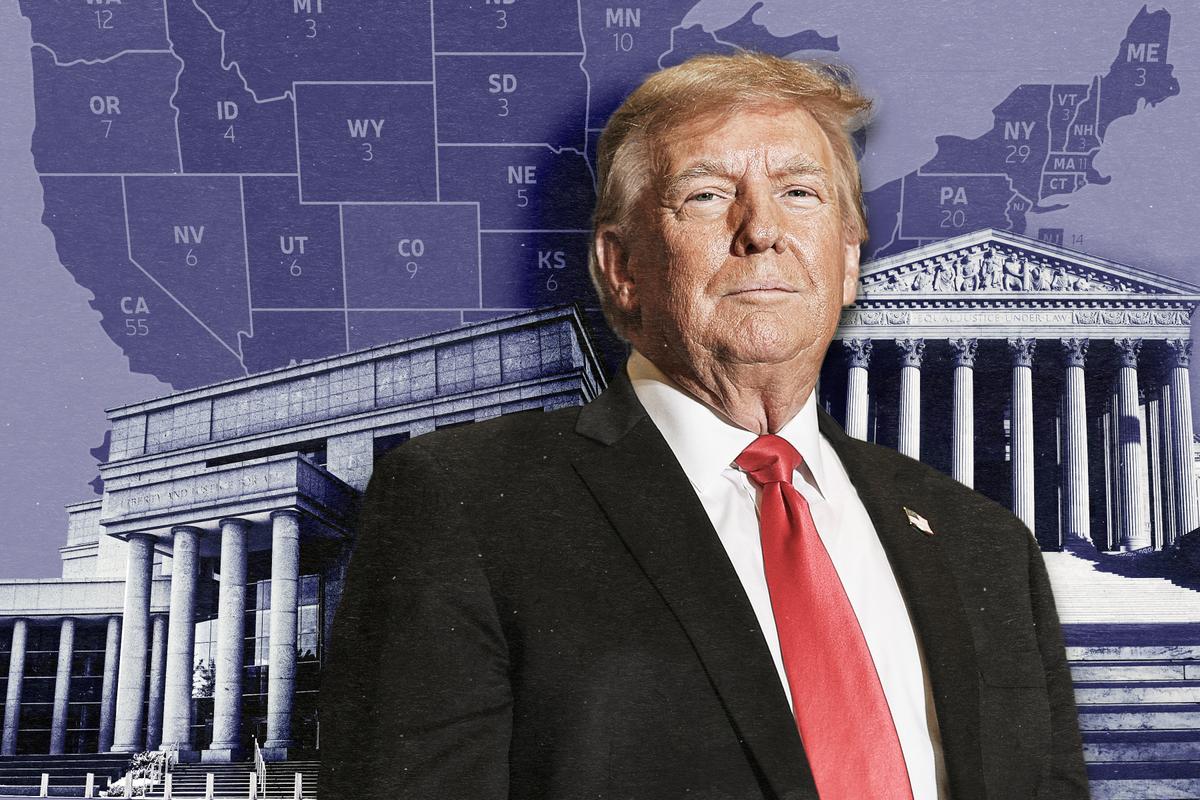
The 2024 election is being reshaped by the courts as Colorado decides to strike Trump from its primary ballot, energizing other blue states to follow suit.

WORDS OF WISDOM
“He who would travel happily must travel light.”
ANTOINE DE SAINT-EXUPERY
WASHINGTON—The Colorado Supreme Court’s decision to ban former President Donald Trump from the state’s ballot will rock the political and legal landscape of the nation, responses to the ruling indicate.
On the legal front, both sides of the political aisle are looking to the U.S. Supreme Court to ultimately define what it means to wage an insurrection against the United States for the purposes of disqualification from office. On the political front, the ruling is set to galvanize President Trump’s supporters and escalate political pressure on the Supreme Court.
Colorado Supreme Court ruled 4–3 on Dec. 19 that President Trump is to be barred from the state’s primary ballot because he “engaged in insurrection” by inciting his supporters to storm the U.S. Capitol on Jan. 6, 2021.
But many legal experts, particularly of a more conservative persuasion, argue that the court’s five-day evidentiary hearing was insufficient to make the decision and that the ruling misconstrued the facts of the Jan. 6 incident.
President Trump’s lawyers and other stakeholders have announced that they’ll appeal the ruling to the U.S. Supreme Court. The ruling is currently on hold until Jan. 4, 2024, to give the high court a chance to weigh in.
Some pollsters and consultants and even President Trump’s primary opponents said the ruling will be perceived as unfair and bolster support for the former president.
Democrat politicians have largely welcomed the ruling while acknowledging that the Supreme Court will have to settle the matter. Some have called for conservative Supreme Court Justice Clarence Thomas to recuse himself from cases involving President Trump.
The ruling bears little direct impact on the election since candidates don’t need to be on the ballot in all 50 states to win and President Trump is unlikely to carry the deep-blue Colorado anyway.
Nonetheless, the ruling appears to be triggering and renewing efforts to kick the former president off the ballot in other blue-leaning states, including New York, California, and Pennsylvania.
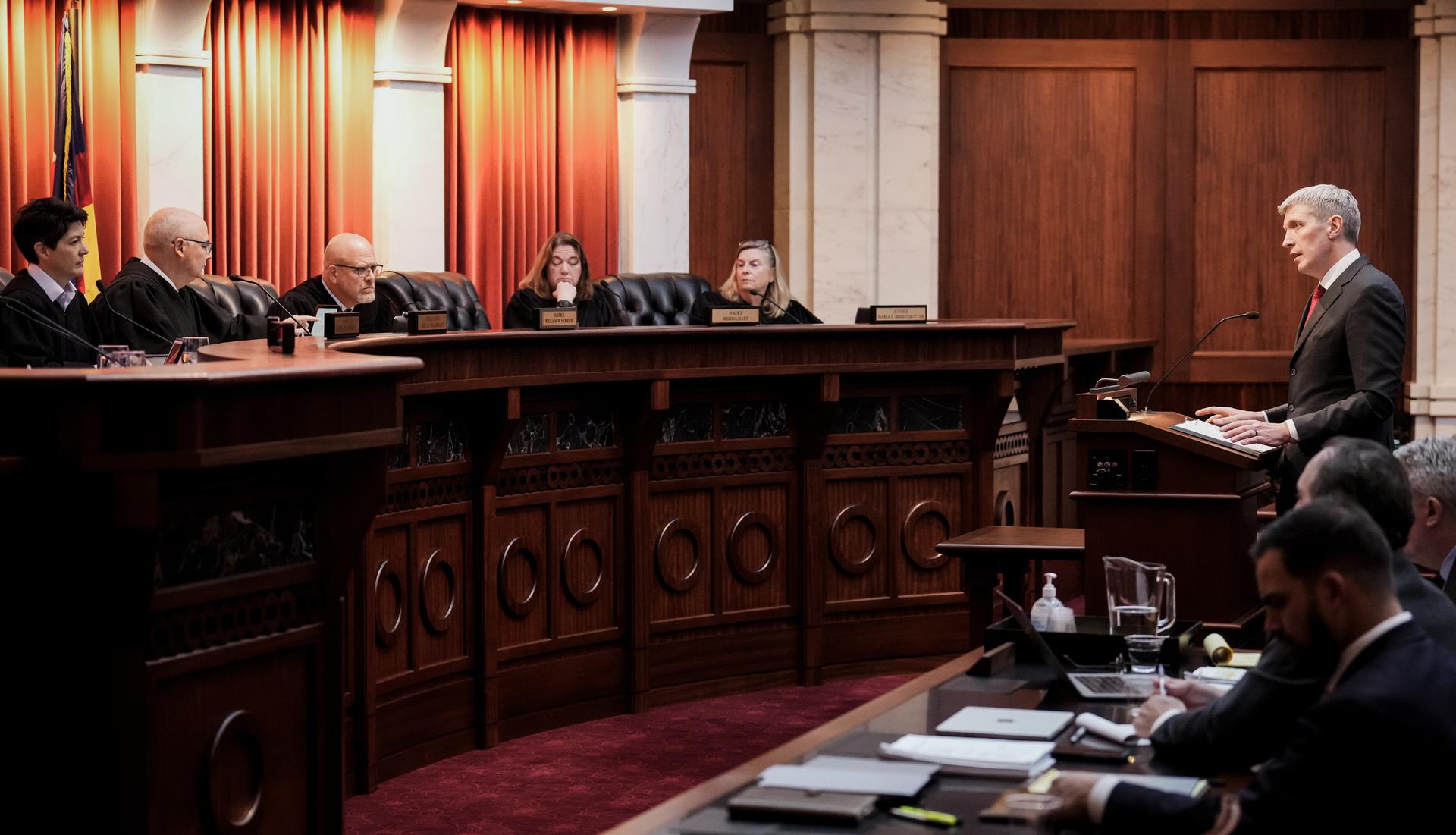
Legal Issues
The core argument presented in the Colorado case is that President Trump incited the hundreds of thousands of people who gathered for his speech in Washington on Jan. 6, 2021, to engage in an insurrection—an attempt to forcibly overthrow the government.
The legal reasoning then follows that the 14th Amendment of the Constitution bars from office anybody who has engaged in an insurrection. Because Colorado law states that only qualified candidates can appear on the ballot, it would be “wrongful” for its secretary of state to allow a person disqualified under the 14th Amendment to be on the ballot.
Since the 14th Amendment dates back to 1868—designed to prevent former Confederates from holding government positions—the Colorado justices looked into dictionaries from that time for definitions of the term insurrection.
For the purposes of the Trump case, they came up with the definition: “a concerted and public use of force or threat of force by a group of people to hinder or prevent the U.S. government from taking the actions necessary to accomplish the peaceful transfer of power in this country.”
Their definition also relied on a previous ruling in the case by a lower Colorado court that defined insurrection as “a public use of force or threat of force … by a group of people … to hinder or prevent execution of the Constitution of the United States.”
Based on the justices’ reading of the facts, they had “little difficulty concluding that … the events of January 6 constituted an insurrection.”
The group of people that entered the Capitol was sizable, “armed with a wide array of weapons,” and “chanting in a manner that made clear they were seeking to inflict violence against members of Congress and Vice President [Mike] Pence,” according to the ruling.
“The required force or threat of force need not involve bloodshed, nor must the dimensions of the effort be so substantial as to ensure probable success,” the justices argued.
“Soon after breaching the Capitol, the mob reached the House and Senate chambers, where the [election] certification process was ongoing. This breach caused both the House and the Senate to adjourn, halting the electoral certification process.”

Rob Natelson (Courtesy of Rob Natelson)
The justices concluded that since there was a group of people that threatened force and that because of their actions the certification was hindered and because President Trump riled up his supporters with words such as “we fight like hell,” he therefore engaged in insurrection.
Lawyers for President Trump and other legal experts have argued that the Jan. 6 incident was more of a riot than an insurrection.
Only a “tiny, tiny minority” of the protesters engaged in threatening behavior, noted Rob Natelson, a constitutional scholar who has written extensively on the meaning of the Constitution.
“Almost all the demonstrators were unarmed, and they killed no one; only a small percentage of them actually entered the Capitol—and many of those were effectively invited in by Capitol security people. And, once inside, most just milled around aimlessly,” he wrote in an Epoch Times op-ed.
“I mention these facts not to excuse the rioters but to point out that the incident bears no serious relationship to ‘insurrection’ as the Constitution employs the word,” Mr. Natelson said.
He said the Colorado court was wrong to rely on the congressional Jan. 6 report for factual assertions given the factually constrained and partisan nature of the report.
It was “a little disingenuous” for the court to use President Trump’s reference to “fight” in the literal sense, given the context of his speech, Mr. Natelson told The Epoch Times.
He said the behavior of a minority in the crowd shouldn’t be blamed on a speech in which the president specifically urged the crowd to express themselves “peaceably.”
The justices dismissed the president’s call to peace as an “isolated reference.”
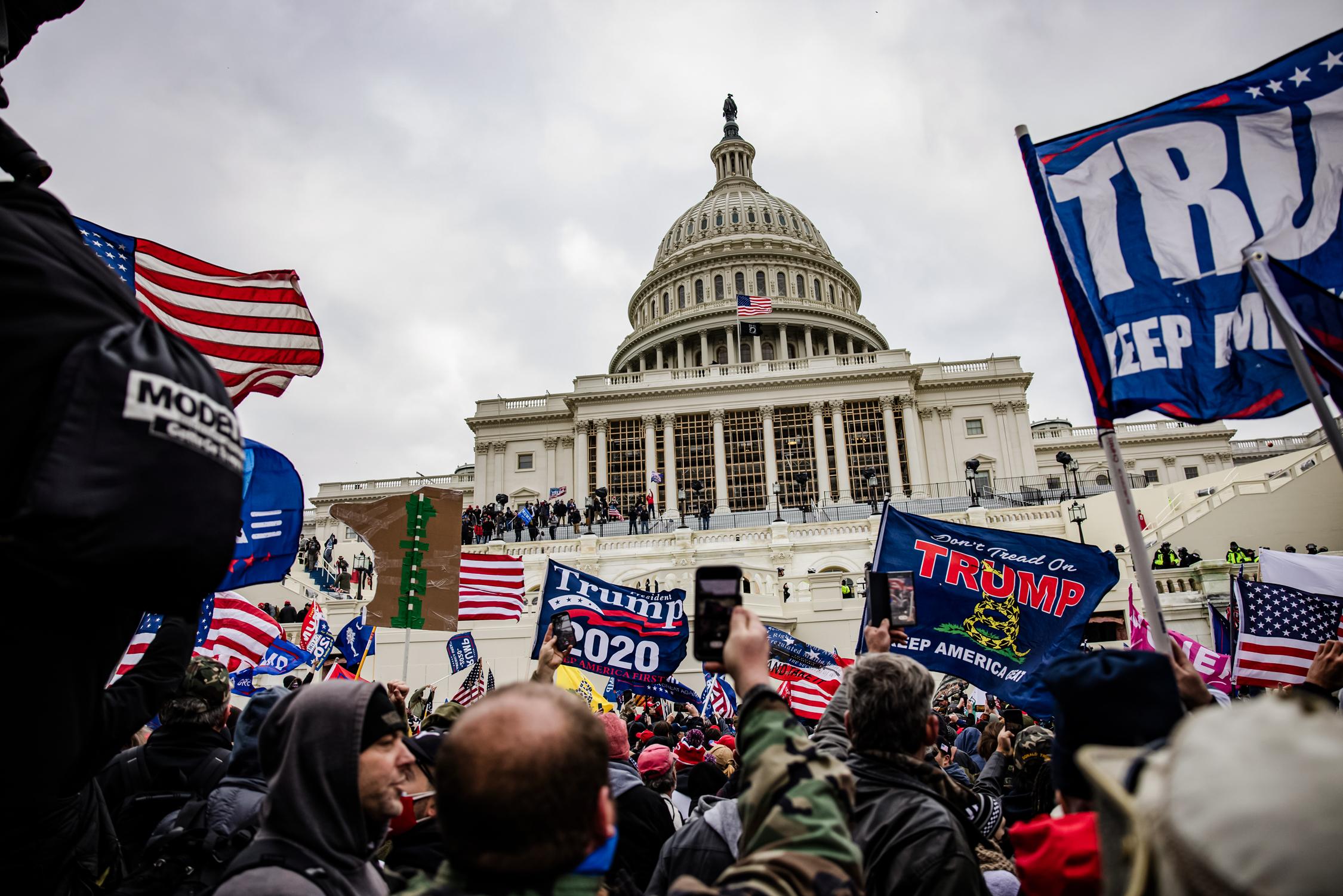
Trump supporters clash with police and security forces as people try to enter the U.S. Capitol in Washington on Jan. 6, 2021. (Brent Stirton/Getty Images)
In their view, President Trump was part of an effort to delay the counting of the electoral votes and thus a party to an insurrection.
However, Mr. Natelson noted that President Trump had the right to call on the vice president to delay the proceeding based on legal advice he had received, even if he was wrong on the law.
“There was certainly nothing wrong with somebody presenting an alternative theory and trying to persuade him to wait until there has been more investigation,” he said.
“That’s not insurrection. That’s free speech.”
Mr. Natelson also pointed out that three of the seven justices on the Colorado court, including its chief justice, dissented from the opinion, arguing that the expedited civil proceeding was insufficient to satisfy President Trump’s due process rights on a matter of such gravity.
To satisfy due process, guilt of insurrection should be determined in a criminal proceeding, Mr. Natelson argued, echoing a point made by other lawyers.
“This is a massive denial of due process. The most fundamental way and the easiest way to see that is: President Trump has not been convicted by a criminal jury unanimously of insurrection,” Jeff Clark, a former Department of Justice official who aided President Trump’s election challenge, said in an NTD interview.
Political Fallout
The Colorado decision has caused a significant uproar among members of both parties, but the overall effect is likely to favor President Trump, according to some analysts.
“It helps him in the sense that it totally dominates the news. It forces his competitors to endorse him against the judges, as you notice they’ve done immediately,” said former House Speaker Newt Gingrich, a contributor to The Epoch Times.
“Four lawyers have decided that their views outweigh the 1,364,607 Coloradans who voted for Trump in 2020. They should not be allowed to pretend they are judges. They have replaced the rule of law with the rule of power. Welcome to Venezuela. Or Cuba. Or Nicaragua.”
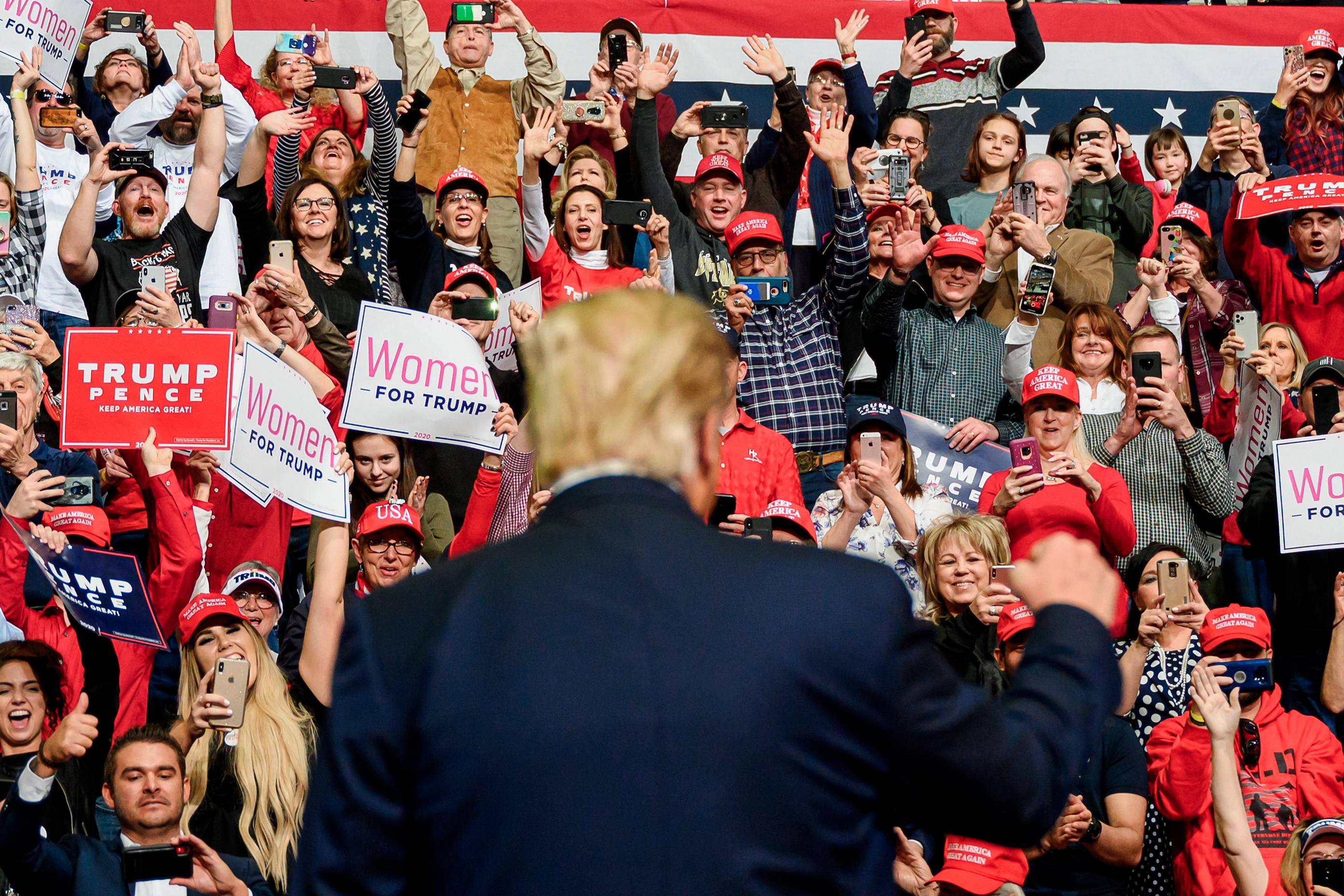
Supporters cheer as President Donald Trump speaks at a “Keep America Great” rally in Colorado Springs, Colo., on Feb. 20, 2020. (Jim Watson/AFP via Getty Images)
Former U.N. Ambassador Nikki Haley walked a fine line between defending the former president and speaking against him at an Iowa campaign stop on Dec. 19.
“I will tell you that I don’t think Donald Trump needs to be president. I think I need to be president,” Ms. Haley said. “But I will beat him fair and square. We don’t need to have judges making these decisions, we need voters to make these decisions.”
Former New Jersey Gov. Chris Christie, who’s also vying for the Republican nomination, said President Trump shouldn’t be prevented from being president by a court.
“I think he should be prevented from being the president of the United States by the voters of this country,” he said in a Dec. 19 statement.
Vivek Ramaswamy called the ruling “un-American, unconstitutional, and unprecedented,” writing on X that “a cabal of Democrat judges are barring Trump from the ballot in Colorado.”

The tech entrepreneur pledged to remove his name from the Colorado ballot unless President Trump is restored, and he called on other candidates to do the same. None have yet agreed to do so.
In a twist, Florida Gov. Ron DeSantis theorized that the court’s ruling may be part of an effort to aid President Trump in clinching the Republican nomination.
“What the left and the media and the Democrats are doing—they’re doing all this stuff, to basically solidify support in the primary for him, get him into the general, and the whole general election is going to be all this legal stuff,” Mr. DeSantis said on Dec. 20 in Des Moines, Iowa.
The more serious impact, beyond the current election cycle, is the effect of the ruling on the electoral process, according to some observers.
“It’s a constitutional crisis the likes of which we haven’t seen since the Civil War,” Dave Williams, chair of the Colorado Republican Party, told The Epoch Times.
“This is something that you may have seen in the Soviet Union or in a banana republic. But it’s un-American. Absolutely, completely un-American.”
Roger Severino, a former federal prosecutor and former head of the Office of Civil Rights at the Department of Health and Human Services, told The Epoch Times: “A kangaroo court in Colorado relied on a kangaroo court in Congress to deprive the people of the right to vote for the leading presidential candidate. This outrage makes a mockery of the rule of law and the democratic system.”
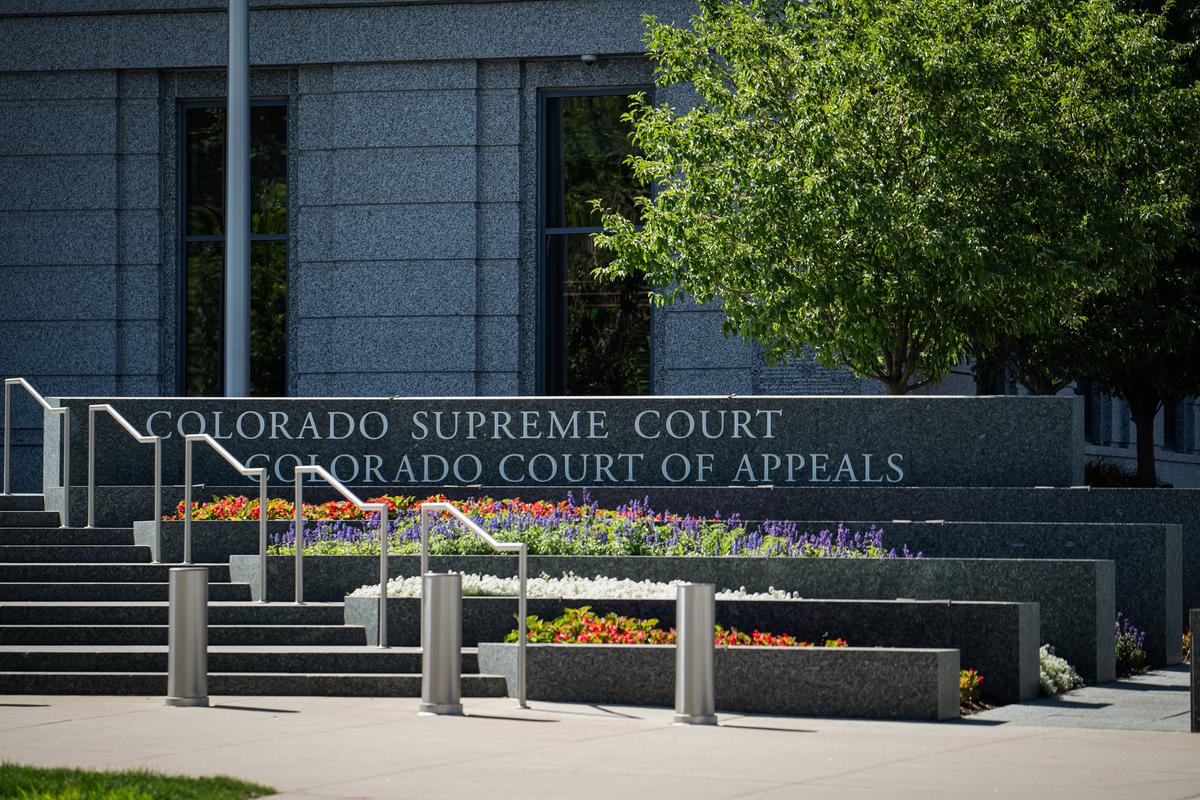
Biden Weighs In
President Joe Biden declined to comment on the legitimacy of the court’s decision but said emphatically that President Trump is an “insurrectionist.”
“I think it’s self-evident. You saw it all,” President Biden told reporters in response to a question about the court decision on Dec. 20.
“Now whether the 14th Amendment applies, we’ll let the court make that decision. But he certainly supported an insurrection. There’s no question about it. None. Zero.”
A number of Democratic lawmakers affirmed the court’s decision as upholding the rule of law.
Rep. Ted Lieu (D-Calif.), who was one of the impeachment managers for President Trump’s second impeachment, wrote: “Pleased the Colorado Supreme Court followed the Constitution. The Court appropriately held that Trump is disqualified from being on the ballot. As an impeachment manager, it was very clear to me that the evidence showed Trump called for and incited the mob on January 6.”

Rep. Pramila Jayapal (D-Wash.) wrote: “Good. The former president incited an attack on our democracy and there should absolutely be consequences.”
But the decision could have the opposite effect, energizing both President Trump’s base and independent voters.
A Boon to Trump
“The ruling by the Colorado Supreme Court will almost assuredly backfire on both Democrats and Republican rivals who have been hoping for these developments for months,” said Rich Baris, director of Big Data Poll.
“In our most recent poll, 40 percent of the president’s primary support told us they would write his name on the ballot if for any reason he was not the nominee—the highest percentage we’ve measured this cycle.”
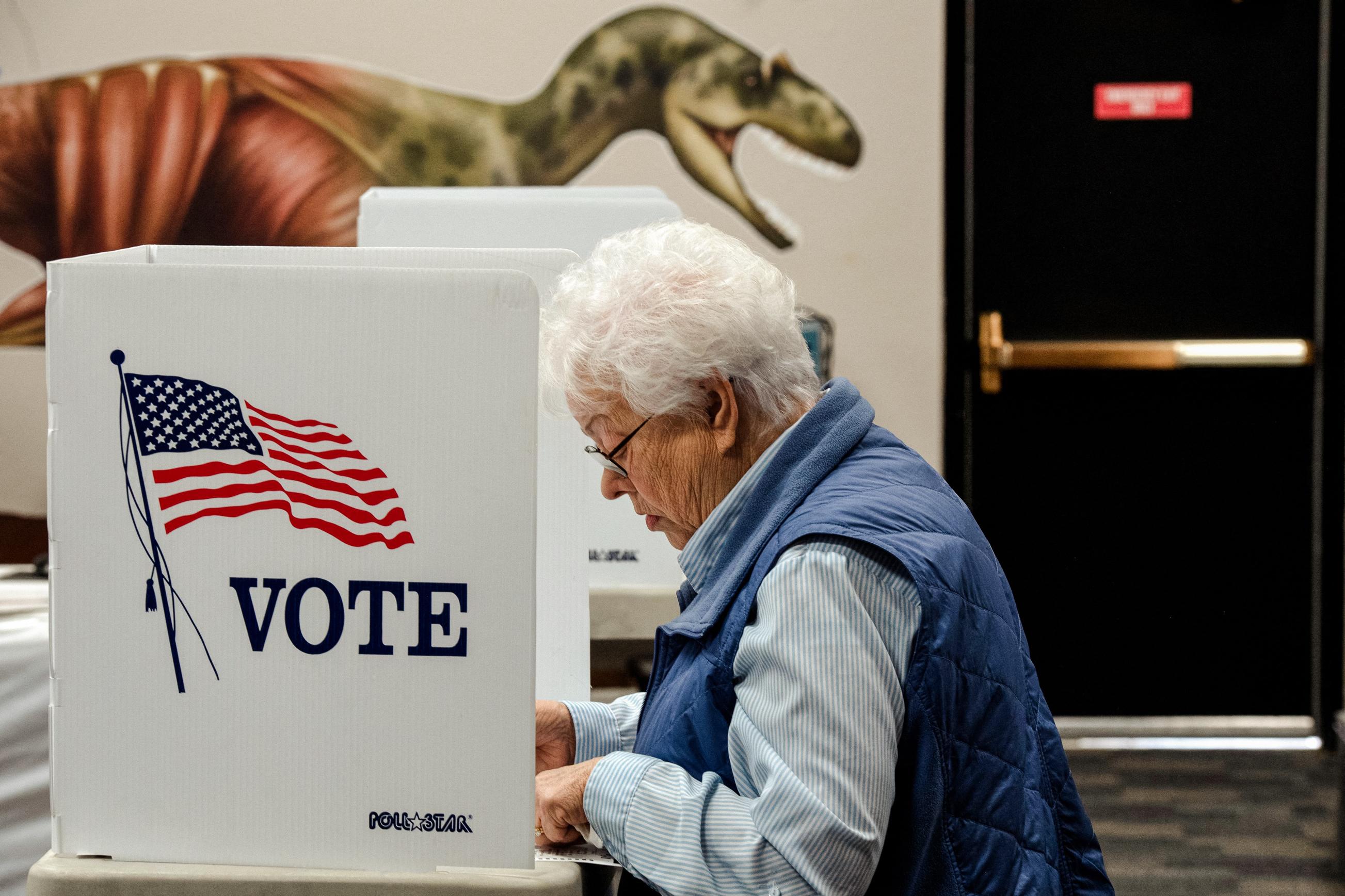
A voter casts their ballot in the midterm election at Dinosaur Journey Musuem in Fruita, Colo., on Nov. 8, 2022. (Jason Connolly/AFP via Getty Images)
Political analyst Frank Luntz shared a similar opinion on X on Dec. 19.
“Colorado has just proven Trump’s theory true that he’s the victim of political persecution,” he said. “His poll numbers won’t drop. On the contrary, they will rise.”
The controversy is likely to energize independent voters as well, according to Henry Olsen, a senior fellow with the Ethics and Public Policy Center.
“[Independents] have tended not to get wrapped up in the ‘Trump is an innocent victim’ versus ‘Trump is an evil malefactor’ argument,” Mr. Olsen told The Epoch Times.
“They’ve tended to view Trump more as an ordinary political figure.
“It’s difficult to predict whether this will shift them. But if it shifted, then that would shift them in Trump’s favor rather than against.”
In any case, the Colorado primary, set for June 25, may have no effect on the Republican nominating contest.
“If Trump does not have the nomination wrapped up by then, there is something else much bigger keeping him from doing so than his being barred from this primary,” political analyst Richard Gordon told The Epoch Times.
“If he hasn’t clinched the nomination by then, he never will.”
As for the ruling’s potential impact on the general election, it wouldn’t be the first time a major candidate didn’t appear on the ballot in all states. Abraham Lincoln was excluded from the ballot in 10 Southern states, which accounted for 61 of the 303 electoral votes.
